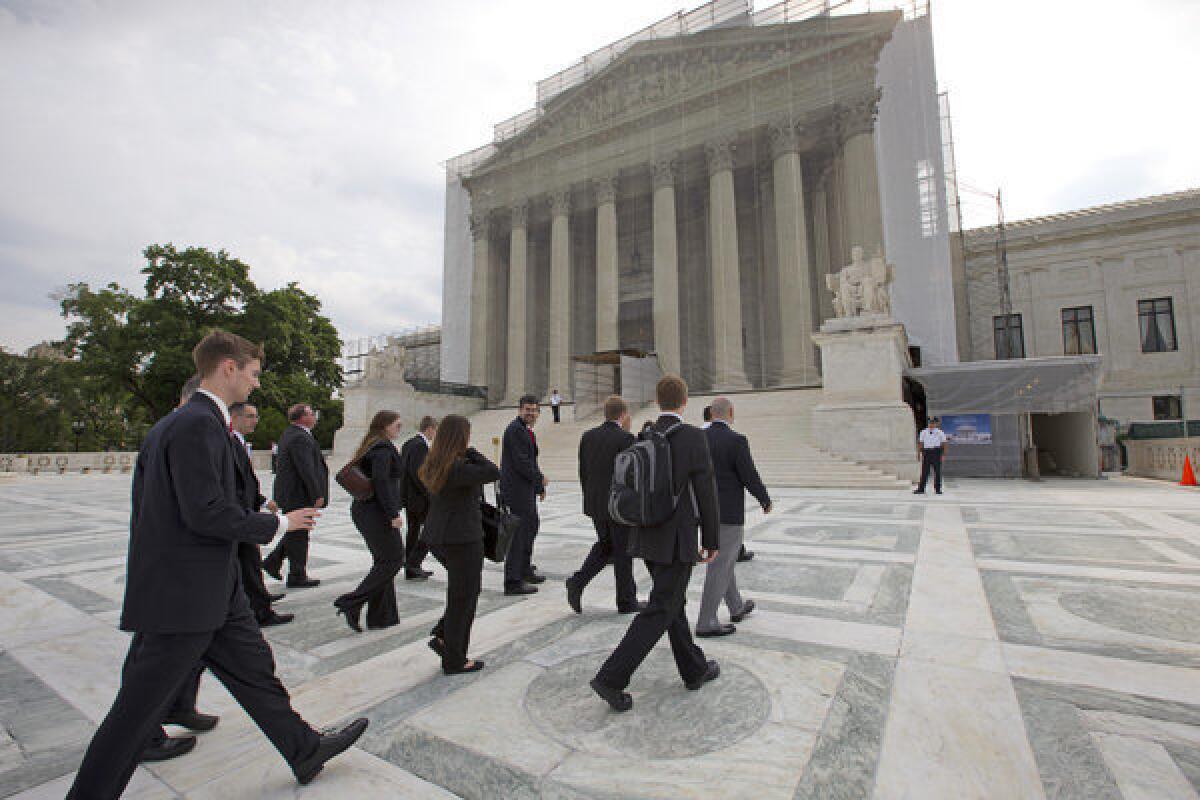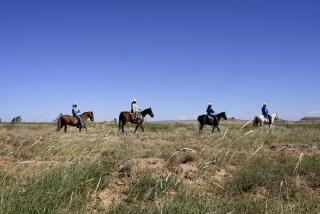Supreme Court blocks Arizona law on voter registration

WASHINGTON â The Supreme Court threw out an Arizona law Monday and by a surprisingly lopsided vote, ruling state officials may not demand a proof of citizenship from residents who register to vote.
The 7-2 decision written by Justice Antonin Scalia said this âproof of citizenshipâ requirement conflicts with the national Motor Voter Act. The measure said states must âaccept and useâ a simple registration form when filled out by residents who are registering to vote.
Scalia insists on closely following the words of the law, and in this instance, the words of the federal measure were clear in their meaning, he said. As written, the Motor Voter Act âforbids states to demand that an applicant submit additional information beyond that required by the federal form,â he said.
The decision is a victory for voting-rights advocates who had challenged the Arizona law and similar measures in a handful of other states. They had sued Arizona on behalf of several state residents who were U.S. citizens but had their voter-registration applications rejected because they did not have a driverâs license or a U.S. passport.
PHOTOS: 2013âs memorable political moments
Despite the ruling, the court stressed that state officials may check other information they have on file and refuse to register would-be voters who are not citizens.
âThe Constitution empowers Congress to regulate how federal elections are held, but â with a few exceptions â not who may vote in them. Determining what qualifications a voter must possess is the province of the states,â Scalia said in the courtroom.
While states must accept a voter-registration application from residents who submit one, federal law âdoes not prevent states from denying registration based on any information in their possession establishing the applicantâs ineligibility,â Scalia said.
The Arizona provision was adopted by the voters in 2004 as part of an initiative intended to âcombat voter fraud.â It went into effect in 2006, but has been tied up in litigation since. The 9th Circuit Court ruled that the federal Motor Voter Act preempted the stateâs âproof of citizenshipâ requirements.
The Supreme Court agreed to hear Arizonaâs appeal last year, and Monday agreed with the 9th Circuit.
Chief Justice John G. Roberts Jr. and Justices Ruth Bader Ginsburg, Stephen G. Breyer, Sonia Sotomayor and Elena Kagan agreed with Scalia in the case of Arizona v. Inter-Tribal Council of Arizona. Justice Anthony Kennedy concurred in a separate opinion.
Dissenting were Justices Clarence Thomas and Samuel A. Alito Jr.
âTodayâs decision sends a strong message that states cannot block their citizens from registering to vote by superimposing burdensome paperwork requirements on top of federal law,â stated Nina Perales, MALDEF vice president of litigation and lead counsel for the voters who challenged Proposition 200. âThe Supreme Court has affirmed that all U.S. citizens have the right to register to vote using the national postcard, regardless of the state in which they live,â concluded Perales.
In a two-year period following passage of Proposition 200, Arizona denied voter registration to more than 31,500 applicants for failing to provide additional documentation. In Maricopa County alone, community voter registration plummeted by 44%.
Follow Politics Now on Twitter and Facebook
More to Read
Get the L.A. Times Politics newsletter
Deeply reported insights into legislation, politics and policy from Sacramento, Washington and beyond. In your inbox three times per week.
You may occasionally receive promotional content from the Los Angeles Times.











